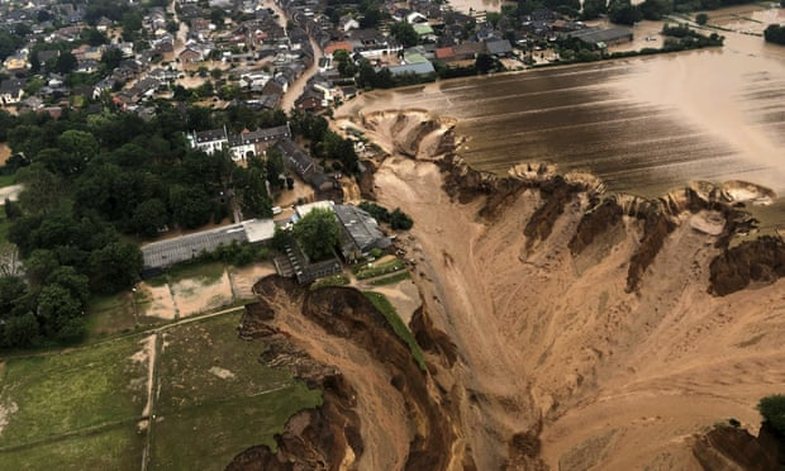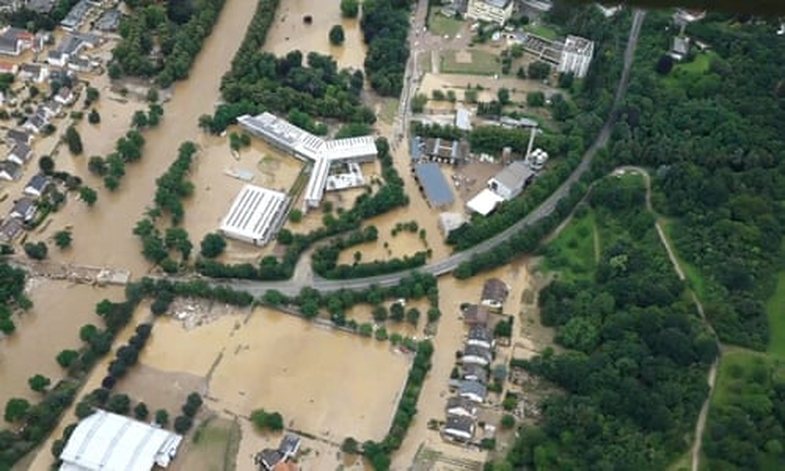
Part of Europe is facing torrential rains and floods that have caused more than 120 deaths and hundreds more missing.
Germany is the country hardest hit by the effects of the extreme weather, with more than 100 killed and 20 people reported dead in Belgium so far. France, the Netherlands and Switzerland are also affected by torrential rains.

German President Frank-Walter Steinmeier said fighting climate change was the only way to prevent natural disasters of this magnitude from happening more often.

Bad Neuenahr-Ahrweiler, Germany

Bad Neuenahr-Ahrweiler, Germany
Stefan Rahmstorf, a professor of ocean physics at the Potsdam Institute for Climate Impact Research, said it was unclear whether the extreme rainfall in Germany was a direct result of global warming.
"But it can be said that such events are becoming more frequent due to global warming," he told the Associated Press, noting that warmer air can absorb more water vapor falling as rain.

"The increase in heavy rain and the decrease in days with light rain are now clearly seen even in the observational data, especially in the mid-northern latitudes, which include Germany," Rahmstorf said.

Shkencëtarët kanë parashikuar prej kohësh se ndryshimi i klimës do të çojë në mot më ekstrem, si valë të nxehtësisë, thatësira dhe përmbytje. Emetimet e gazrave, djegia e pyjeve dhe aktivitete të tjera po ngrohin planetin. Ndërsa atmosfera nxehet, ajo mban më shumë lagështirë e cila sjell më shumë shi.
Unsere Löschzüge retten Anwohner aus der Kyllstraße in Ehrang. pic.twitter.com/oYr6DYy7TJ
— stadt_trier (@Stadt_Trier) July 15, 2021
Të gjitha vendet që kanë përjetuar përmbytje kohët e fundit - Gjermania, Belgjika, Hollanda, Londra, Edinburgu, Tokio - mund të kishin pasur shi veror edhe pa krizën e klimës, por përmbytjet nuk kishte gjasa të ishin kaq intensive.
Shtatë vitet më të nxehta të planetit janë regjistruar të gjitha që nga viti 2014.
Burimet: Euronews, Guardian, Deutsche Welle





